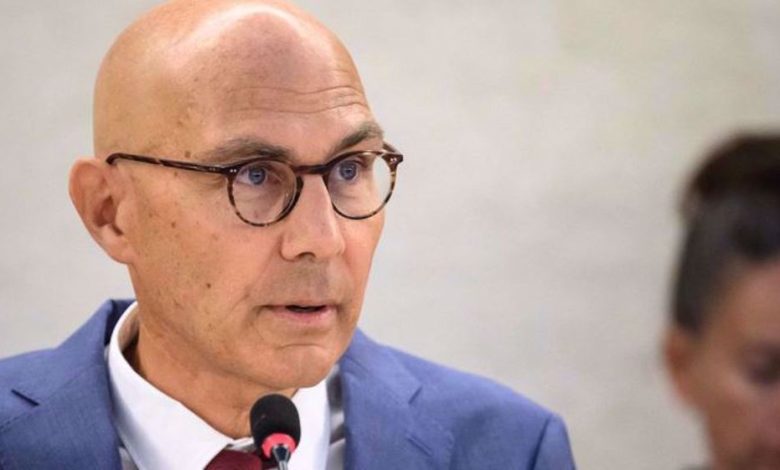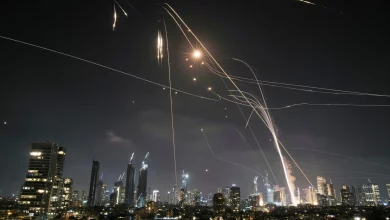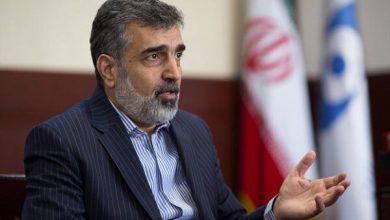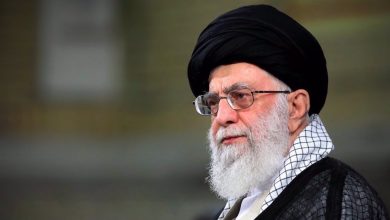UN Human Rights Chief Condemns US Sanctions on ICC Judges as ‘Deeply Corrosive’ to Justice
The United Nations High Commissioner for Human Rights, Volker Türk, has strongly criticized the recent decision by the US government to impose sanctions on four judges of the International Criminal Court (ICC), describing the move as "deeply corrosive" to the principles of good governance and impartial justice administration.

In response to an announcement by US Secretary of State Marco Rubio on Thursday, Türk addressed the imposition of sanctions on International Criminal Court (ICC) judges who are overseeing cases pertaining to alleged US war crimes in Afghanistan. The sanctions also pertain to ICC arrest warrants issued against Israeli Prime Minister Netanyahu and former Military Affairs Minister Yoav Gallant.
Türk expressed significant concern regarding the United States government’s decision to impose sanctions on judges from the International Criminal Court. The sanctions particularly affected four female judges hailing from Benin, Peru, Slovenia, and Uganda, who were involved in rulings concerning cases in Afghanistan and the State of Palestine.
He urged for the immediate reevaluation and retraction of the actions, stating they are “extremely damaging to effective governance and the proper administration of justice.”
The statement asserts that the sanctions target the judges simply for carrying out their judicial responsibilities, an action which is described as fundamentally opposing the principles of rule of law and equal legal protection—ideals traditionally championed by the United States.
The statement characterized the sanctions as “a blatant effort to compromise the autonomy of an international judicial entity, which functions under the mandate of 125 States Parties spanning across the globe.”
The statement cautioned that U.S. sanctions could potentially jeopardize global initiatives aimed at ensuring accountability for the most serious crimes of international concern. It further suggested that these actions might weaken the collective commitment to upholding the rule of law, combating impunity, and maintaining a rules-based international order.
The European Union has voiced its support for the judges of the International Criminal Court, reaffirming its commitment to uphold the court’s role and independence.
In response to the recent decision by the United States to sanction four judges from the International Criminal Court (ICC), the European Union on Friday expressed its firm backing for the ICC, highlighting the court’s role in upholding international justice.
Slovenia, a member of the European Union, revealed its strategy to push Brussels to utilize its authority to block the implementation of these sanctions across Europe.
European Commission President Ursula Von der Leyen emphasized the importance of the ICC’s independence on social media platform X, stating, “The ICC holds perpetrators of the world’s gravest crimes to account and gives victims a voice. It must be free to act without pressure.”
Antonio Costa, the head of the European Council representing the governments of the 27 member states, emphasized the court as a “cornerstone of international justice.” He underscored the importance of safeguarding its independence and integrity.
Since Trump’s return to office in January, the United States has imposed restrictions on officials from the International Criminal Court on several occasions.
Trump has implemented an extensive executive order that threatens sanctions against individuals cooperating with an International Criminal Court investigation. This move aims to deter witnesses from coming forward.
On Friday, the governing body of the court, representing its 125 member states, issued a condemnation of the United States government’s decision to retaliate against the judges.
The Presidency of the Assembly of States Parties expressed concern over what it described as regrettable attempts to obstruct the Court and its staff from carrying out their independent judicial responsibilities.







